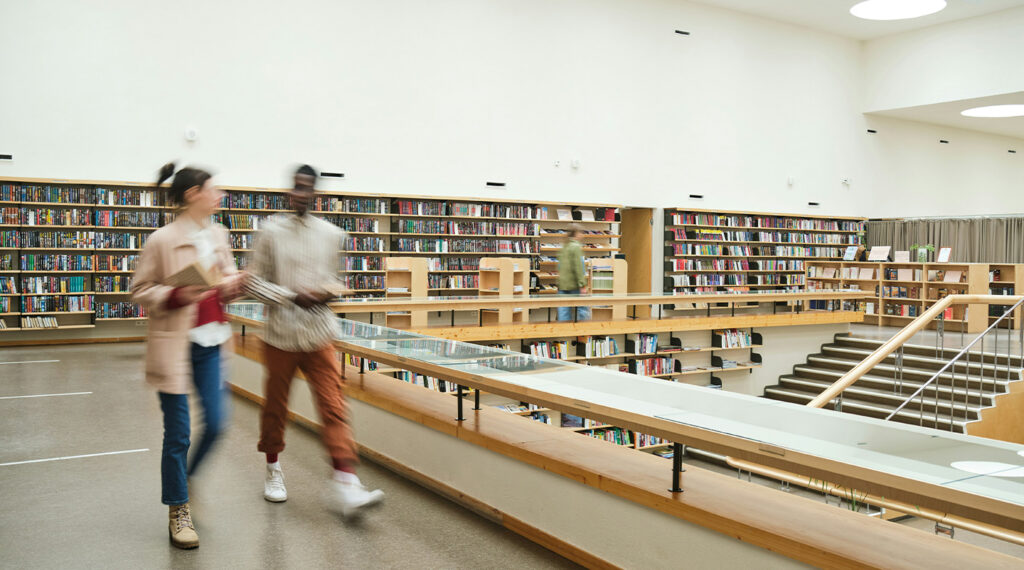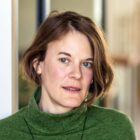Unpacking: On the relevance of the European Cultural Foundation archive for European philanthropy

113 boxes of the ECF archive have arrived at the Historical Archives of the European Union in Florence on 16 June, and about 150 additional ones will be transferred later this year. This is the story of why it matters, not just for the past, but for the future.
Anyone who has ever moved home will remember the seemingly insurmountable task of packing. In the chaos, where objects keep popping out of nowhere, clarity is often comforting: keep this, discard that. But inevitably, a pile forms in a corner: things we’re not sure about, but can’t quite let go.
On 5 March 2025, the European Cultural Foundation signed an agreement with the Historical Archives of the European Union in Florence. From 2026 onwards, Florence will become the new home of our archives, where, for the first time, they will be publicly accessible to researchers, historians, cultural practitioners and anyone interested in Europe, culture and philanthropy.
Since the beginning of the year, we’ve been preparing for the move – starting with nearly 800 boxes of documents. From the outset, we understood this was not just a logistical operation, but a moment for reflection – on what we choose to preserve and on who we are, what we stand for, our contribution to the European project and what we can learn for the present and future.
A Treasure trove and the grey zones
The ECF archives are a treasure trove, covering more than seven decades of cultural collaboration and diplomacy in post-war Europe. They bear witness to many of the major themes that shaped this period: post-war reconciliation, East-West relations, educational policy, enlargement, cultural exchange and mobility, democratic participation and the role of the media. But perhaps more importantly, they capture the vision of an institution whose founders believed that a shared European sentiment – a cultural and emotional bond – was essential to making Europe more than a mere economic and bureaucratic arrangement.
Our dive into the archives allowed us to retrace the foundation’s steps through a wide variety of documents. In addition to the predictable governance records – board meetings, audits, annual reports – we uncovered an extraordinary collection of seminar proceedings, study reports and strategic notes that reflect ECF’s consistent engagement with the times, its creative foresight and its pioneering work. These are documents of undeniable historical value.
Alongside these, we came across more prosaic records: human resources files, bookkeeping, logistical planning. While these tell us much about the working culture of the foundation, their relevance to a broader historical narrative is limited and, as such, they are easier to set aside.
Then, inevitably, we entered the vast and slippery terrain of correspondence – the letters, memos, faxes, telexes and emails that accompany every project and process. This is where boundaries blur, where the archive becomes most vivid, but also most difficult to navigate. Correspondence reveals frictions, negotiations, ambitions, doubts – all the human texture often missing from formal records.
One particularly rich and revealing body of correspondence relates to the ERASMUS programme. Although our role is often overlooked, these letters reveal just how deeply involved we were in shaping the field of higher education in Europe, long before the programme came into being. Our sustained work over two decades made ECF a key partner for the European Community when the time came to design and implement what would become one of its most emblematic initiatives.
Why this matters to philanthropy
At this point, you might be wondering: why should this matter to me?
The history of the European Cultural Foundation holds valuable insights for the philanthropic field today. ECF has championed philanthropy for Europe and in Europe from the very beginning. Acting as a catalyst is part of our DNA, not just for visionary projects and research, but for philanthropy itself. From the outset, we recognised that building cultural bridges and fostering meaningful change cannot be done in isolation. It requires alliances, trust and a shared purpose. It involved undertaking missions, from across Europe and beyond, including to the United States from the early 1970s onwards, to learn from different philanthropic models and forge new connections.
Just months before the fall of the Berlin Wall, ECF convened a seminal conference in Leningrad entitled ‘Cultural Cooperation on the Eve of the XXI Century: The Role of Foundations’ to explore the future of cultural collaboration in a moment of deep political upheaval.
This spirit of cooperation culminated on 9 November 1989 when ECF became one of the seven founding members of the European Foundation Centre (EFC), created to facilitate information exchange between foundations, especially in light of Europe’s rapid eastward expansion. The EFC (now part of Philea), was never just a lobbying tool. It was a platform born out of urgency and optimism, grounded in the idea that philanthropy could play a decisive role in shaping the post-Cold War European space.
Looking back to move forward
Today, as collaboration remains a widely shared aspiration in the philanthropic field – yet often put to the test – it’s worth pausing to reflect. What’s at stake is not only our history, but also the hard-won lessons it holds.
That’s why archives matter.
The ECF archive doesn’t just document our work for a better Europe. It also opens a window onto how foundations think, act, evolve and, sometimes, fail. It’s a record of experimentation, of learning in real time. It reveals the strategic calculations, the compromises, the creative risks and quiet successes that are often missing from public narratives.
As we carry this legacy forward through initiatives like The Europe Challenge, the Cultural Deal for Europe, or Share Europe, we do so with the same questions that animated our founders in the 1950s. We revisit our past not to close it off, but to continue building Europe’s future.
Are the challenges we face today greater than those of decades past? Perhaps. But the solutions remain strikingly familiar: share resources, hold a common vision, stand together. Don’t chase the next big idea in isolation but rather build tomorrow’s world together.
Authors

